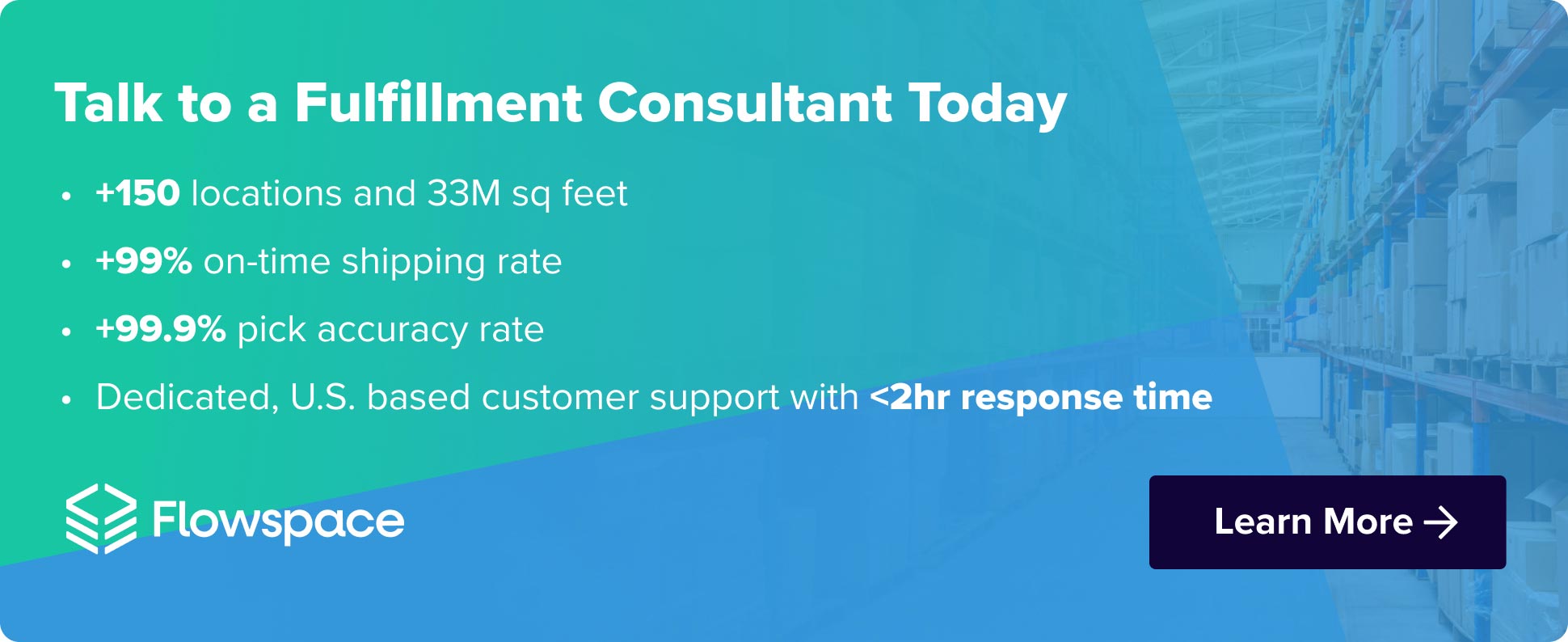
In today’s digitally connected world, expanding your brand beyond U.S. borders has never been easier. Enter cross-border ecommerce, the key to unlocking a world of growth opportunities. Think about marketing your best-selling product to a whole new audience on various ecommerce platforms in countries across the world.
Expanding beyond the U.S. borders allows brands to take advantage of a global population who are increasingly looking beyond their own countries for quality goods and products. In China alone in 2018, there were more than 280 249 million consumers who regularly make cross-border purchases from different countries [1].
Read on to discover how cross-border ecommerce can be a gamechanger for your brand and how to best take advantage of this opportunity.
What Is Cross-Border Ecommerce?
Cross-border e-commerce refers to the online buying and selling of products or services between businesses and consumers in different countries. It involves transactions that take place across national borders through various online platforms, such as websites, marketplaces, or social media channels. This opens up a whole new world of opportunities for brands to venture into cross-border selling and cross-border payments.
Why Cross-Border Ecommerce is Important for Your Business
So, why is cross-border e-commerce important for your business? Well, expanding your business globally through cross-border e-commerce can bring several benefits, including increased sales and international market reach, diversified consumer base and boosted brand awareness through strategic digital marketing.
Selling across-borders allows you to tap into new target markets and reach a much larger customer base. You have the opportunity to sell your goods or services to online shoppers from different countries, who may have different preferences and buying habits.
Cross-border e-commerce enables you to diversify your revenue streams. By selling internationally, you can reduce your dependency on a single market and mitigate risks associated with local economic fluctuations. This can help you achieve a more stable and sustainable business growth.
Cross-border e-commerce also provides a chance for you to leverage cost advantages. Depending on the country, you may find lower production or operational costs, which can contribute to increased profitability. Additionally, you can take advantage of currency exchange rates to maximize your profits.
Current Trends in Global Ecommerce
One significant trend is the rise of mobile commerce or m-commerce. With the widespread use of smartphones and tablets, more online shoppers are making purchases through mobile devices rather than desktop or laptop computers. This trend has led to the development of mobile-friendly websites, apps, and payment solutions, making it easier for consumers to shop internationally using their mobile devices.
Another trend is the increasing popularity of marketplaces. Online marketplaces like Amazon, Alibaba, and eBay provide a platform for businesses to reach a large consumer base worldwide. Different marketplaces have credibility and trust in different countries, which can help brands expand with a built-in customer base.
Similarly to consumers in the U.S., consumers abroad are looking for personalization and a great customer experience. Customers expect tailored experiences, personalized recommendations, and seamless shopping journeys regardless of their location.
Consumers are also becoming increasingly concerned with sustainability and social responsibility. They are becoming more conscious of the environmental and social impacts of their purchases. Businesses that incorporate sustainability practices and ethical sourcing into their operations are likely to attract environmentally and socially conscious consumers.
Advantages of Cross-Border Ecommerce for Businesses
The advantages of cross-border e-commerce for businesses include increased sales and international market reach, a diversified customer base, and boosted brand awareness.
Increased Sales and Market Reach
With cross-border ecommerce, your sales potential skyrockets. By venturing into international markets, you tap into a larger pool of customers who are hungry for your products or services. Gone are the days of being confined to your local market’s limitations. Think: selling beauty products in Japan or children’s toys in the Netherlands. This means more opportunities to sell your products or services and increase your overall sales volume.
Expanding your business internationally not only widens your customer base but also opens up new markets. Imagine the possibilities of reaching customers in different countries, each with its own set of needs and desires. By adapting your offerings to suit these diverse preferences, you can boost sales and revenue like never before.
Diversified Customer Base
One of the most exciting aspects of cross-border ecommerce is the opportunity to diversify your customer base. By connecting with customers from various countries and cultures, you gain valuable insights into their unique buying habits and preferences. Armed with this knowledge, you can tailor your products, services, and digital marketing strategies to better resonate with international customers.
Diversifying your customer base also mitigates risks associated with economic fluctuations in a single market. By spreading your business across multiple regions, you safeguard your revenue streams and create a more stable foundation for growth. It’s like having several pillars supporting your business instead of relying on just one.
Boosted Brand Awareness
Picture this: your brand, globally recognized and respected. That’s the power of cross-border ecommerce. As you venture into international markets, customers from different corners of the world become familiar with your products and services, enhancing brand recognition on a global scale.
Boosting brand awareness beyond borders doesn’t just increase visibility; it also builds credibility. When customers in various countries trust your brand, it solidifies your reputation as a reliable choice. This trust further fuels your growth and paves the way for long-term success.
Challenges of Cross-Border Ecommerce
Some of the common hurdles brands will encounter in cross-border ecommerce include navigating international taxes and regulations, overcoming language and cultural barriers, tackling shipping costs and logistics, and dealing with currency conversion and local payment methods.
Navigating International Taxes and Regulations
When venturing into international markets, be prepared to tackle a maze of tax and regulatory requirements. Each country has its own set of rules and regulations governing imports, customs duties, and tax obligations. Understanding and complying with these regulations can be a daunting task, requiring meticulous research and possibly the assistance of experts who specialize in international trade. Failure to navigate this challenge can result in delays, penalties, or even legal consequences.
Language and Cultural Barriers
Language barriers can pose significant challenges when dealing with customers, suppliers, and partners from different countries. Investing in translation services or multilingual customer support can bridge this gap and enhance customer satisfaction. Additionally, understanding cultural nuances is crucial for tailoring your marketing messages and strategies to resonate with international audiences. Conducting thorough market research and adapting your approach accordingly can help you overcome this hurdle.
Shipping Costs and Logistics
Dealing with varying shipping regulations, customs procedures, and the complexity of the international supply chain can cause headaches for businesses. It’s essential to partner with reliable logistics providers who specialize in cross-border shipping and have a strong track record. Additionally, ensuring accurate tracking and timely delivery becomes even more critical when dealing with international customers who have high expectations.
Currency Conversion and Payment Processing
Currency conversion and local payment methods and processing can present challenges in cross-border ecommerce. Customers may prefer to pay in their local currency, so offering multiple currency options can enhance the shopping experience. However, currency conversion rates can fluctuate, impacting profitability. Similarly, providing secure and seamless payment processing options that cater to different countries’ preferences is crucial. Partnering with payment service providers that specialize in cross-border transactions can simplify this challenge and offer peace of mind.
Tips for Expanding Your Ecommerce Business Globally
Expanding your ecommerce business globally through cross-border ecommerce is an exciting opportunity. A significant part of this venture involves understanding order fulfillment dynamics across-borders and the intricacies of product inventory management. By following a few essential tips, you can set a solid foundation for success.
Researching Your Target Markets
Before diving headfirst into global expansion, conduct thorough market research. Understand the unique characteristics, preferences, and buying habits of your target markets. Identify trends, local competitors, and potential challenges, including those in inbound logistics. This knowledge will guide your strategies, enabling you to tailor your products, marketing messages, and pricing to resonate with international audiences.
Adapting Your Website for International Audiences
Your website is the face of your business, and it needs to speak the language of your global customers. Invest in professional translation services to offer multilingual options, ensuring a seamless browsing experience for international visitors. Localize your website by adapting cultural nuances, currencies, and measurement systems. This personalized touch demonstrates your commitment to serving international customers and facilitates smooth ecommerce fulfillment.
Offering Multiple Payment and Shipping Options
International customers have diverse payment preferences, so it’s crucial to provide multiple payment options. Accept local currencies and partner with reputable payment service providers to offer secure and convenient transactions. Additionally, streamline your shipping process by collaborating with a reliable logistics and fulfillment company who specializes in cross-border delivery. A company like Flowspace can help you manage outbound logistics, offering flexible shipping options and transparent tracking ensures a positive customer experience.
Providing Excellent Customer Support
Superb customer support is the cornerstone of a successful global ecommerce business. Be responsive and accessible to customers across time zones. Invest in multilingual customer support to address inquiries promptly and professionally. Leverage technology like chatbots and AI-powered tools to provide real-time assistance. Remember, exceptional customer support builds trust, loyalty, and positive word-of-mouth, boosting your brand reputation worldwide.
How Flowspace Helps You Overcome Cross-Border Ecommerce Challenges
Are you ready to conquer the challenges of cross-border ecommerce and expand your business globally? Look no further than Flowspace, your trusted partner in overcoming the hurdles of international expansion.
Expertise in International Shipping and Fulfillment
Flowspace is equipped to handle international shipping and fulfillment, with services to handle hassle-free cross-border logistics. Its vast partner network connects companies with partners that further enhance or improve international shipping operations, including the intricacies of customs procedures, import/export regulations, and shipping requirements across different countries.
Customized Ecommerce Solutions for Your Business
One size doesn’t fit all in the world of cross-border ecommerce, and Flowspace understands that. Flowspace offers customized fulfillment software and solutions tailored to your unique business needs. Our system can track essential logistics KPIs, ensuring you maintain an effective operation as your business grows.
Flexible and Scalable Warehousing
Warehousing is a crucial aspect of cross-border ecommerce, and Flowspace offers flexible and scalable warehousing solutions. Flowspace has a network of strategically located warehouses, both domestically and internationally, ready to store and manage your inventory.
Streamlined Returns Management
Returns are an inevitable part of ecommerce. Flowspace handles inbound returns, and connects with a robust returns partner ecosystem to provide merchants with optionality and control over what’s best for their business.
Flowspace empowers merchants with the software and services needed to orchestrate best-in-class flexible fulfillment. With a nationwide fulfillment network and industry-leading SLA performance, Flowspace helps merchants optimize fulfillment operations, including cross-border
Get in touch today to learn how Flowspace’s solutions can help your brand expand its borders and take advantage of all cross-border ecommerce has to offer!
Sources:
[1] Kaplan, Marcia. 2018. “Chinese Consumers Are Eager to Buy Foreign Goods.” Practical Ecommerce. Practical Ecommerce. June 20, 2018. https://www.practicalecommerce.com/chinese-consumers-eager-buy-foreign-goods.







